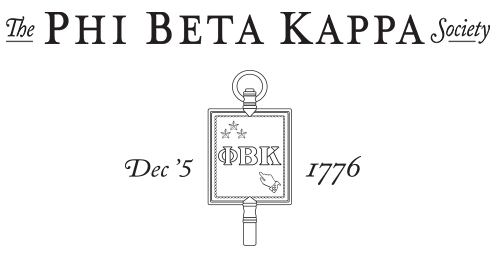 |
FOR IMMEDIATE RELEASE
May 1, 2017
Contact: Jen Horneman
Phone: 202-745-3287
|
Prominent Philosophers Cartwright and Sober Win 2017 Lebowitz Prize
WASHINGTON, DC – May 1, 2017 – Prominent scholars in philosophy Nancy Cartwright, professor of philosophy at UC San Diego and the University of Durham, and Elliott Sober, Hans Reichenbach and William F. Vilas Research Professor of Philosophy at University of Wisconsin–Madison, have won the 2017 Dr. Martin R. Lebowitz and Eve Lewellis Lebowitz Prize for Philosophical Achievement and Contribution. A top honor recognizing outstanding achievement in the field, the Phi Beta Kappa Society (PBK) in conjunction with the American Philosophical Association (APA) awards the prize annually. Each winner will receive an award of $26,000.
The Lebowitz Prize was established in 2012 by a generous bequest from Eve Lewellis Lebowitz in honor of her late husband, Martin R. Lebowitz, a distinguished philosophical critic. Lebowitz Prize winners must be two philosophers who hold contrasting views on a chosen topic of current interest in philosophy. They present their views and engage in rich dialogue at an annual Lebowitz symposium at an APA divisional meeting and at a public lecture.
Both Elliot Sober and Nancy Cartwright are renowned for their work in the philosophy of science, and they secured the 2017 Lebowitz Prizes with their topic, “Is there such a thing as the scientific method?” They question if the global and local theories of scientific inference are able to work parsimoniously or if there should be a concern with these theories uniting.
Sober, Ph.D. in philosophy (Harvard) who served as the president of the Central Division of the APA, the Philosophy of Science Association, and the International Union of History and Philosophy of Science from 2012 until 2015, asks, “On the one hand, statistical ideas about model selection suggest that parsimony has a global (subject matter independent) rationale; on the other, the use of cladistic parsimony in evolutionary biology suggests that the principle of parsimony should be understood locally. Can these two approaches be reconciled?”
While Cartwright, Ph.D. in philosophy (University of Illinois) who served as the president of the Philosophy of Science Association, as vice-president and president of the Pacific Division of the APA, Professor Emeritus at the London School of Economics, Fellow of the British Academy, and member of the American Academy of Arts and Sciences, the German Academy of Sciences Leopoldina, is skeptical: “My concerns are with these inferences. Scientific claims must be supported by success in predicting and intervening. Unity of method? When it comes to using scientific knowledge, the disunity and particularity of method matter. If the uses made of scientific claims are to be successful, the methods and practices that warrant and interpret our claims must be sufficient to support the inferences drawn from them.” The winners will present their work at an APA symposium in early 2018 followed by a PBK-sponsored symposium. Dates are to be determined.
The deadline for nominations/applications for the 2018 Lebowitz Prize is November 1, 2017. To apply, contact Jen Horneman at jhorneman@pbk.org.
###
About The American Philosophical Association
Founded in 1900, the American Philosophical Association promotes the discipline and profession of philosophy, both within the academy and in the public arena. The APA supports the professional development of philosophers at all levels and works to foster greater understanding and appreciation of the value of philosophical inquiry.
About The Phi Beta Kappa Society
Founded on Dec. 5, 1776, The Phi Beta Kappa Society is the nation’s most prestigious academic honor society. It has chapters at 286 colleges and universities in the United States, almost 50 alumni associations, and more than half a million members worldwide. Noteworthy members include 17 U.S. Presidents, 39 U.S. Supreme Court Justices and more than 130 Nobel Laureates. The mission of The Phi Beta Kappa Society is to champion education in the liberal arts and sciences, foster freedom of thought, and recognize academic excellence. For more information, visit www.pbk.org
FOR IMMEDIATE RELEASE
May 4, 2016
Contact: Jen Horneman
Phone: 202-745-3273
|
Educational and Cultural Institutions Deemed ‘Critically Necessary’
FOR IMMEDIATE RELEASE
May 4, 2016
Contact: Jen Horneman
Phone: 202-745-3273
|
Educational and Cultural Institutions Deemed ‘Critically Necessary’